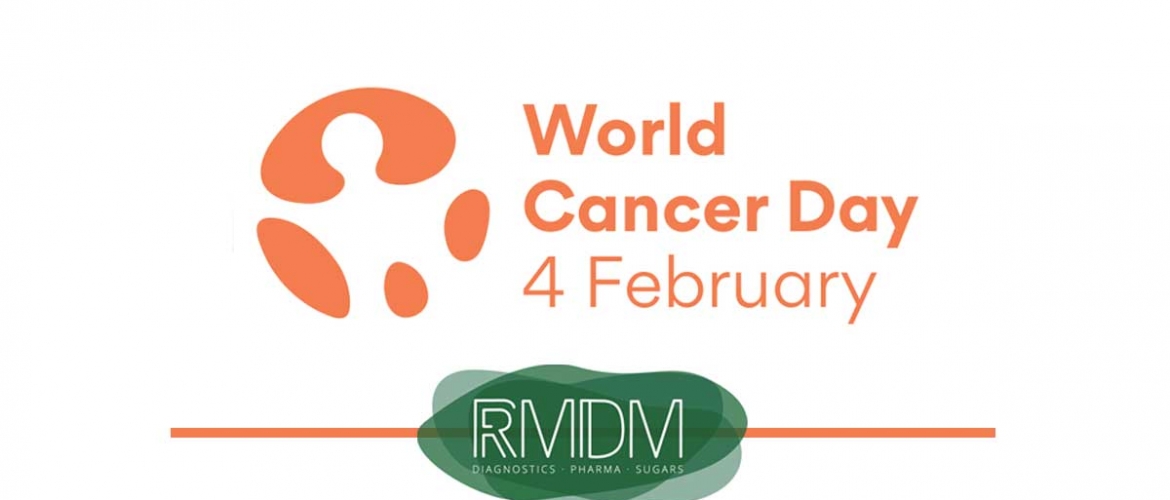World Cancer Day 2021 – It’s Time to Act

February 4th 2021 was World Cancer Day – a day focused on raising awareness of the disease and a stark reminder that we have a long way to go in the war against this disease. Although we may be in the middle of a global pandemic, we mustn’t lose sight of the fact that cancer still accounts for a staggering 10 million worldwide deaths each year -a number that is estimated to rise to around 16.4 million in the next 20 years. We owe it to the memory of those we’ve lost to cancer, those currently fighting and future generations to throw everything we’ve got into tackling it – now.
Cancer: a coin toss?
Whether it’s a partner, a close relative, a friend, a colleague or a distant acquaintance, nearly everyone knows someone who has had or currently has cancer. Sadly, most also know of at least one person who has succumbed to the disease, often after a period of debilitating illness, poor to no quality of life and taken many years too soon.
The harsh reality is that 1 in 2 people in the UK will be diagnosed with cancer in their lifetime. That’s basically like saying that your chance of developing cancer depends on the outcome of a coin toss. How do you like those odds? We don’t and we aren’t alone. A 2019 survey undertaken by Censuswide and commissioned by RMDM found that over two thirds of those surveyed cited cancer as being their biggest health concern and 63% of those asked think that current cancer diagnosis methods take too long.
Early detection saves lives
According to Cancer Research UK, 38% of cancers are preventable, and it is estimated that another third can be cured if their cancer is detected early and treated properly. The Union for International Cancer Control (UICC) who are behind the World Cancer Day initiative agree, stating ‘by implementing resource-appropriate strategies on prevention, early detection and treatment, we can save up to 3.7 million lives every year’. This information hasn’t bypassed our NHS who have recognised the importance of early detection in the fight against cancer in their Long Term Plan. While the current pandemic is certainly commanding the immediate attention of CCGs and private healthcare providers, we cannot afford to take our foot off the gas when it comes to the innovation that is needed to make successful early detection technologies possible.
Ali Ghaidan, Chief Executive Officer at RMDM agrees: ‘Whilst the NHS Long Term Plan has identified early detection of cancer to be a top priority, it is clear from our research that the government must act faster to improve cancer screening in the UK’.
This is especially true when it comes to diagnosing cancer with non-specific symptoms. Patients who have non-specific symptoms often take longer to be diagnosed and have poorer clinical outcomes than those with site-specific symptoms. The results from one clinical study of patients presenting with non-specific symptoms cites an improvement in making a successful diagnosis of around 8%. While it demonstrates the diagnostic potential of a non-site-specific symptomatic referral pathway, this level of ‘progress’ just isn’t enough.
Significant impactful, measurable action against cancer is needed NOW, before we see the number of cancer deaths spiral as predicted. A commitment to action against cancer has resulted in RMDM producing the PanTum blood test – a lifesaving cancer technology with a high level of accuracy, that has been described as ‘a significant potential breakthrough’ in early detection. PanTum is already being used in Germany and Holland and is available at the Center for Health and Human Performance (CHHP), 76 Harley Street, London W1G 7HH. Find out more by visiting our website.
Resources:
- https://www.cancerresearchuk.org/health-professional/cancer-statistics/risk/lifetime-risk
- https://www.cancerresearchuk.org/health-professional/cancer-statistics/risk/preventable-cancers
- https://www.worldcancerday.org/why-cancer
- https://www.cancer.gov/about-cancer/understanding/statistics
- https://www.nature.com/articles/s41416-020-0947-y